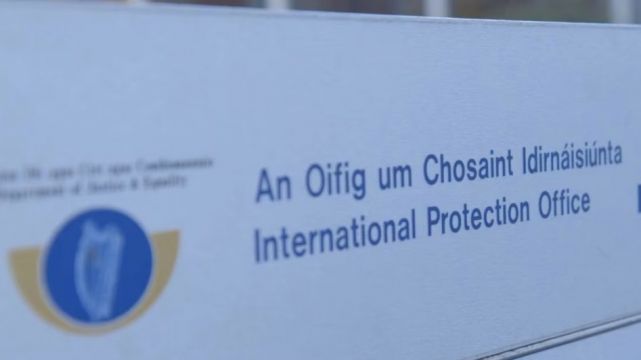The Court of Justice of the European Union (CJEU) will be asked legal questions as part of a judge’s consideration of whether the State must pay damages to asylum seekers who were left homeless upon arrival in Ireland.
The High Court’s Mr Justice Cian Ferriter said the “test cases” brought by two males raised “significant questions” with no clear answers under EU law. He requires guidance from the Luxembourg court on how to determine the actions, whose outcomes will determine the fate of some 50 other damages claims before the court.
One of the test case applicants, a 25-year-old Afghan man, was homeless for 71 days after arriving in February, allegedly causing him to feel suicidal and “scared almost all the time”.
The other, a 22-year-old Indian man, says the 63 days he spent sleeping rough from mid-March were stole his health, mental clarity and character. The experience was “worse than anything I have ever experienced… it changed me forever”, he says.
Some 50 applicants seek so-called Francovich damages, named after a CJEU case, over the State’s breach of its statutory duty. The cases are confined to the period from last January 24th to June 9th, when many single adult male international protection applicants were left homeless.
The State opposes the damages claims as, it argues, its failure to provide the accommodation arose from extraordinary circumstances stemming from the huge influx of refugees fleeing the war in Ukraine and the unexpectedly large increase in the number of other international protection applicants arriving here in the same period.
'Force majeure' defence
Mr Justice Ferritter said he needs the EU court to determine whether such a “force majeure” defence, which points to an unforeseen extreme situation as the cause, can be used in a Francovich damages claim for a breach of an EU law obligation conferring fundamental human dignity rights.
If such a defence can be used, the judge wants the European court to outline its parameters and proper scope.
The Francovich claims arise out of the High Court finding last April that the Minister for Integration breached an Afghan national’s fundamental right to human dignity by failing to provide him with “material reception conditions”, including accommodation, shelter, food and basic hygiene.
Mr Justice Charles Meenan also held that the Minister breached his obligations under the European Union (Reception Conditions) Regulations of 2018 and the Charter of Fundamental Rights of the EU.
The Afghan alleged he was 17 but treated as an adult and was given a €28 Dunnes Stores voucher upon arriving here last February and had to resort to begging for food.
The two lead Francovich cases were selected for argument over whether international applicants in similar situations to the young Afghan are entitled to damages for being denied their entitlements to accommodation and the State’s failure to provide for their basic needs.
EU directive
In his judgement referring two questions to Europe, Mr Justice Ferriter said lawyers for the Minister submitted that he had always acknowledged the State’s legal obligations under the 2018 regulations and a connected EU directive.
All women, children and family applicants seeking international protection were being accommodated during the period when the Citywest Transit Hub closed to further recipients, from January to June.
Adult males received shelter in chronological order from their date of arrival, while every effort was being made to secure more accommodation, the court was told.
To consider the State’s argument in context, Mr Justice Ferriter said it was necessary to examine prior warnings about Ireland’s need to equip itself with permanent capacity to handle around 3,500 new applications each year with additional contingency plans ready for unforeseen surges.
The judge said more than 83,000 Ukrainians arrived in this State between February 2022 and the end of May 2023, and these were processed separately from the normal international protection system.
There was also a surge in other applicants, he said. As of mid-May 2023, 20,485 people, excluding Ukrainians, were being accommodated in the protection system, compared to 8,555 at the end of January 2022. The number of emergency centres increased from 24 to 153 over this time.
The high point of the crisis was on May 5th, when 583 international protection applicants were without accommodation, the judge said.
The judge said the State was unable to point to any legal case where force majeure was allowed as a defence to State liability for infringing a fundamental human right, such as the right to dignity.
Mr Justice Ferriter said that if such a defence is available in principle, this particular content “must surely require a very exacting scrutiny” about whether the failure to provide basic needs going to human dignity can be excused in this way.
It might be considered that the State in addition to seeking more accommodation should have provided significantly enhanced financial assistance to the applicants or erected secure emergency shelter, such as possibly tented shelter, for short periods, he added.
The judge said he will ask the parties for input before finalising his questions for Europe.







